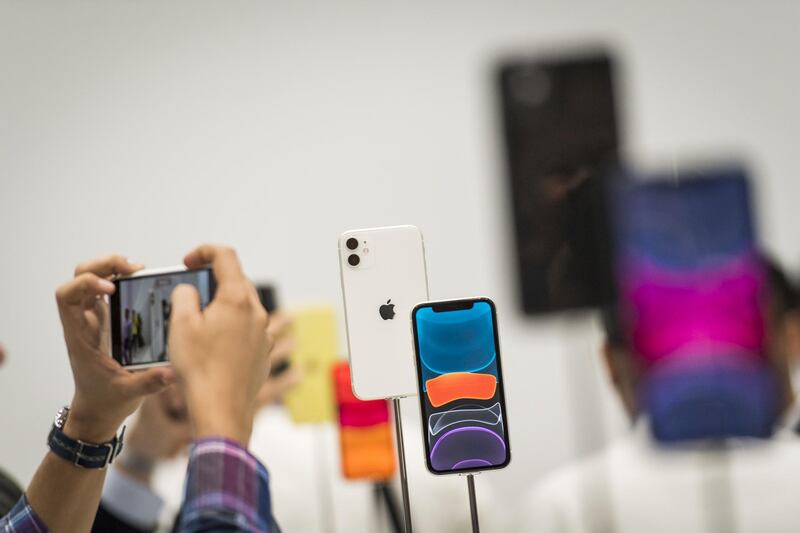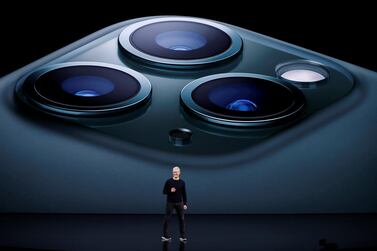Despite Apple’s efforts to attract budget-conscious consumers by introducing a lower-cost option for its newest iPhone, industry analysts are not convinced the offering will prove to be the magic wand the company needs to revive its shrinking smartphone business.
Consumers will shell out Dh2,949 to buy a new iPhone 11, Dh230 less than the launch price tag of last year’s low-cost iPhone XR. So far, this is the biggest yearly drop in iPhone's 10-year history for a new device of similar specs to the upgraded model.
“Surprise for many is the starting price of iPhone 11 that is cheaper than the 2018 variant (iPhone XR)… but only around $50 cheaper,” said Neil Campling, co-head Global Thematic Group at Mirabaud Securities.
“Will that move the dial? Unlikely,” he added.
iPhone sales dropped 11.8 per cent to $25.9 billion (Dh95bn) in the third quarter to June from a year-earlier period. For the first time since 2012, Apple generated less than half of its total quarterly revenue from the iPhone - a sign the company needs to look beyond its flagship product for growth.
The average price for a smartphone other than one made by Apple is $360, while the Cupertino company's cheapest phone starts at $599. However, with three cameras, the configuration that has been popular in other brands, prices of iPhones 11 Pro and the 11 Pro Max will rise beyond $1,000, noted Mr Campling.
Both iPhone 11 Pro and iPhone 11 Pro Max are priced Dh10 cheaper than the launch price of their predecessors iPhone XS and iPhone XS Max.
By offering a low-cost base-model iPhone, Apple is trying to increase it’s presence in a wider array of price bands - a strategy which competitors Samsung and Huawei been following for years, according to Nabila Popal, senior research manager for the Middle East, Africa and Turkey on researcher International Data Corporation's devices group.
"However, I am eager to see whether this new model [iPhone 11] at this price band is able to steal share from competitors' models at this price band or from older models of Apple itself," Ms Popal said.
There are so many options available at this price range that it will be interesting to see what consumers will choose, she noted.
The ploy of reducing the price has worked in Apple's favour in the past.
The lower-priced XR was Apple's bestselling iPhone in the last quarter and the company is also expected to introduce a lower cost iPhone in 2020 along the lines of the iPhone SE that was launched in 2016. Starting at Dh1,466, the SE saw strong sales, with the company selling 30 million units in 2016, but it stopped manufacturing the phone in September last year.
An absence of 5G support and a weightier device may also hamper iPhone sales, according to analysts.
The iPhone 11 Pro Max weighs 226 grams compared to iPhone XS at 177grams and iPhone 8 Max at 202 grams, said Mr Campling.
“The likely reason could be the battery … by comparison Samsung Galaxy Note 10 [launched last month] is just 168 grams.”








